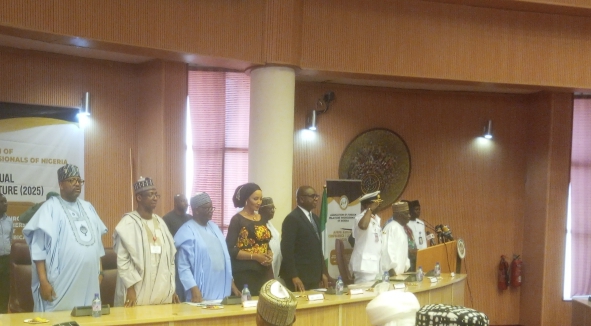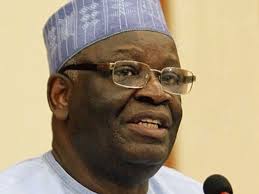Former Envoy Warns of Escalating African Conflicts, Decries AES Exit from ECOWAS
By Raymond Enoch
In a stark warning to African policymakers and international stakeholders, former United Nations Under Secretary-General and Special Adviser on Africa to the UN Secretary-General, Prof. Ibrahim Gambari, has expressed deep concern over the rising tide of conflicts across the African continent.

Speaking in Abuja at the annual meeting of the Association of Foreign Relations Professionals of Nigeria (AFRPN), Prof. Gambari underscored the urgency of addressing security challenges and strengthening regional institutions to prevent further instability.
Chairing the occasion, Prof. Gambari congratulated AFRPN for convening discussions on the theme “Economic Liberation through Public-Private Partnerships (PPPs): A Catalyst Against Neo-Colonialism in Africa.” He commended the association for positioning itself to advance sustainable solutions to Africa’s pressing problems, particularly as the continent grapples with political and economic upheavals.
“We are living in an era of dynamic change, where the entire globe is enveloped in several volcanic events,” Gambari stated, alluding to the widespread instability facing African nations. He specifically lamented the recent exit of the Alliance of Sahel States (AES) – comprising Mali, Burkina Faso, and Niger – from the Economic Community of West African States (ECOWAS), describing it as a troubling development.

Prof. Gambari cautioned that the departure of AES countries from ECOWAS is not an isolated event but a growing trend that could further fragment regional cooperation. The withdrawal, he noted, reflects deeper discontent with traditional multilateral frameworks, exacerbated by governance challenges, economic inequalities, and security crises in the region.
The Former Presidential Chief of staff highlighted how digital technology is playing an increasing role in shaping the geopolitical landscape. While it offers opportunities for economic and social transformation, it has also enabled extremist ideologies, misinformation campaigns, and cyber threats that undermine stability.
To counter these challenges, Prof. Gambari called for the strengthening of regional institutions, including the ECOWAS Standby Force, as a critical mechanism for responding to security threats and fostering peace. He urged African leaders to embrace innovative approaches such as PPPs, which he described as a key tool for economic resilience and self-reliance.
“This is where the opportunity of PPPs lies,” he emphasized. “By leveraging the strengths of both the public and private sectors, African nations can drive development, improve infrastructure, and create sustainable economic frameworks that reduce dependency on external forces.”
The forum in Abuja provided a platform for diplomats, academics, and policymakers to deliberate on strategies to prevent further political and economic disintegration in Africa. Participants echoed Prof. Gambari’s concerns and underscored the importance of reinforcing diplomatic channels to address grievances among member states and restore faith in regional cooperation.
As Africa faces mounting geopolitical uncertainties, the call for renewed commitment to regional integration and sustainable development remains more urgent than ever. Whether ECOWAS and other African institutions can rise to the challenge will shape the future trajectory of peace and stability on the continent.








